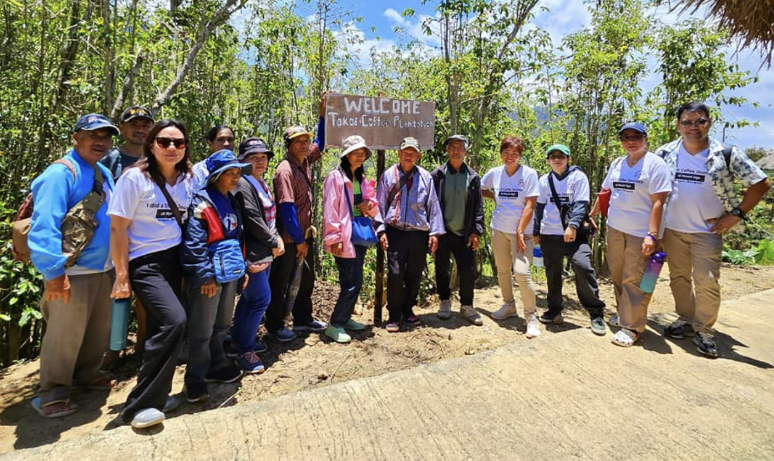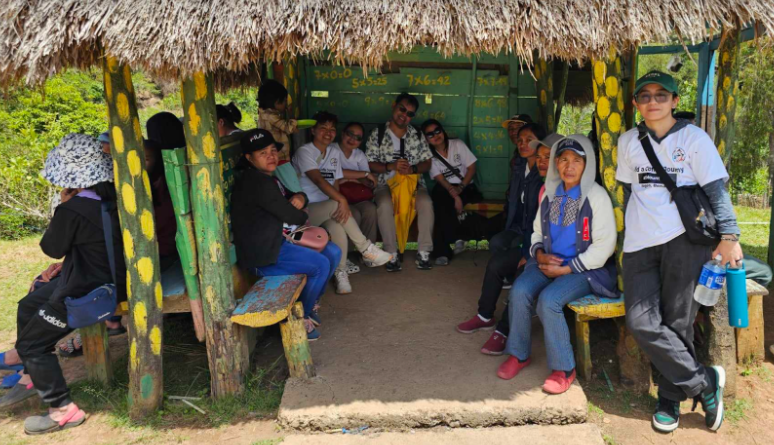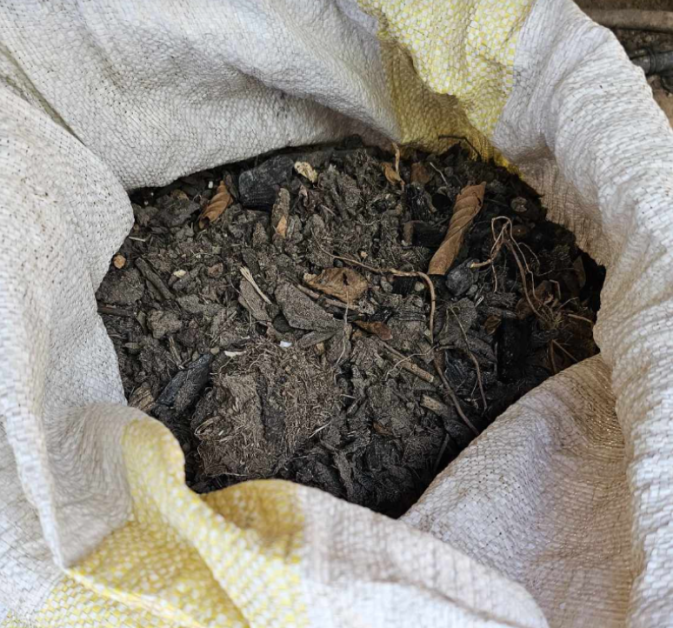Saint Louis University’s (SLU) Extension initiative, the Benguet Coffee Project (BCP), entered its second phase on 1 May 2024 through a collaborative partnership with the Domolpos Ansipsip Ancestral Domain Indigenous People Organization (DAAD-IPO).
Led by Extension Coordinator Ms. Eliza Joyce Palaroan, along with BCP members Lee Majors Fajilan, Maria Araceli Diaz-Tambol, and Kasima Rose Mendoza, in collaboration with DAAD-IPO representatives, this phase centered on evaluating and refining the Coffee Tourism itinerary. This was initially drafted by indigenous community members from Ansipsip, Kayapa, Nueva Vizcaya, and Domolpos, Itogon, Benguet. Additionally, the participants witnessed the application of knowledge acquired by local farmers through their training with BCP’s partner, Farm to Cup, including innovative practices like biochar production.



The journey commenced in Ansipsip, Kayapa, Nueva Vizcaya, where participants were immersed in the rich history of coffee cultivation amidst century-old plantations. Continuing to Domolpos, Itogon, Benguet, the participants actively participated in every stage of coffee production, from roasting and grinding to brewing and tasting. This hands-on experience allowed for a deeper appreciation of the artistry and tradition embedded in coffee-making.
The success of the Coffee Tourism itinerary was the collaborative evaluation undertaken by the BCP members, the DAAD-IPO representatives, and the local community. Together, they ensured that the itinerary authentically represented the region’s cultural heritage while promoting sustainable tourism practices. The tour concluded with gratitude towards DAAD-IPO and the local community for their warm hospitality. DAAD-IPO’s President, Anton Galate Taynan, extended his appreciation to BCP for its initiative in evaluating and promoting coffee tourism, recognizing the positive impact on their community.



The collaboration exemplified a commendable effort towards advancing the United Nations Sustainable Development Goal (SDG) 8 (Decent Work and Economic Growth) by promoting coffee tourism and sustainable farming practices. The project’s integration of sustainable tourism practices ensures that development aligns with environmental conservation and cultural preservation, supporting SDG 11 (Sustainable Cities and Communities). Finally, the initiative emphasizes responsible consumption by educating visitors on the coffee journey from Farm to Cup, raising awareness of ethical sourcing and sustainable production methods. This focus reinforces SDG 12 (Responsible Consumption and Production).







